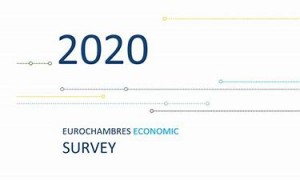European Economic Survey - Companies' expectations for 2021
The 28th annual edition of the European Economic Survey (EES2021) reveals high levels of concern for the European business next year. The results underscore the need for continued support, swift and effective recovery measures and a coordinated European response, said EUROCHAMBRES President Christoph Leitl.
EES2021 presents the expectations of over 58,000 companies in 29 European countries for the next year. The results show that the entrepreneurs predict a very difficult year ahead, as they cope with the ongoing effects of the COVID-19 pandemic on the productivity and demand, and BCCI shares serious concerns for companies.
The sudden general deterioration in the business confidence, reflected in a sharp decline, on an annual basis, in all EES2021 indices, clearly shows that the European economic recovery will not be quick, as many entrepreneurs are still trying to absorb the effects of the sharp economic downturn after March. Businesses in most countries define the labor costs and rules on financing among the main challenges. Respondents from southern Europe are particularly concerned about the accumulated debt as a result of COVID-19, while Western European countries stress concerns about the lack of skilled workers.
In Bulgaria, the main challenges are balanced to a large extent. In the first place, the debts created as a result of COVID-19, are followed by the discontinuations of the supply chains. The concerns of the companies about the prices of energy and raw materials, although with a close percentage, are reduced a little compared to the previous two years with levels around 51% to 42% for 2021. There is a drastic reduction in the difficulties due to the lack of qualified staff, which is decrased by 22% compared to the expectations for 2019 and 2020. This is logical, taken into consideration the increased unemployment, caused by the pandemic and the wider access to staff. At the same time, however, companies are significantly more concerned about labor costs.
The EES2021 results reflect the unprecedented nature and scale of the ongoing economic crisis, which not only affected demand but also drastically hampered productivity. The legacy of the double whammy inevitably weighs heavily on European business in many ways. The policy response must be swift, effective and coordinated.
None of us can yet predict how the COVID-19 pandemic will continue, but as restrictions tighten again in much of Europe, BCCI will continue to work intensively with its members and government institutions to help them overcome this crisis and be able to manage their future recovery.






